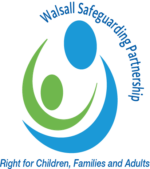Exploitation
Exploitation involves being groomed, forced or coerced into doing something that you don’t want to do for someone else’s gain.
It is a complex and hidden issue. People who are being exploited can find themselves in situations where they experience abuse and violence, and may be forced to take part in criminal activities.
Exploitation can happen anywhere, where increasing numbers of vulnerable children and adults are being identified as victims. It takes place in urban and rural areas and affects people of all ages, genders and ethnicities.
The below gives an overview of what exploitation is, the forms it can take, and why some people are more vulnerable to being exploited.
Criminal exploitation is also known as ‘county lines’ and is when gangs and organised crime networks may trick you, manipulate you and force you to sell drugs. This can happen to anyone, no matter their background. You could be made to travel across counties and given a dedicated mobile phone ‘lines’ to supply drugs.
These criminals will groom you into trafficking their drugs for them with promises of money, friendship and status. you may feel as if they have no choice but to continue doing what the criminals want.
If you need help contact the Multi-Agency Safeguarding Hub on 0300 555 2866 during office hours or on Evenings, weekends, bank holidays contact the Emergency Response Team on 0300 555 2922 or 0300 555 2836
Please use this slang dictionary which seeks to support parents, carers and professionals to better understand the language young people may be using and support them to safeguard young people.
What is sexual exploitation?
Sexual Exploitation is when someone tricks you, manipulates you and maybe forces you to do something sexually for the benefit of themselves or others.
This person may act as your friend, boyfriend or girlfriend, they could be your age, older, male or female, you may have known them a long time or they may be a new friend.
You may have met this person on line or through friends. But something is telling you this is not right, you need to listen to that feeling.
- They may make you have sex or perform sexual acts on them or other people
- They may blackmail you with pictures they have of you
- They may make you watch things you do not want to see
- They may encourage you to take and send naked images of yourself
- They may encourage you to drink alcohol or take drugs
- They might touch you which makes you feel uncomfortable
They may make you feel as though:
- They love you
- They care about you
- Respect you and treat you like an adult
- They may offer you a place to stay
- They may offer you gifts, drugs, clothes, mobile phone
But although they make you feel special, they also:
- Make you feel guilty
- Threaten you or your family and friends
- Blackmail you
- Maybe violent towards you
- Humiliate you and make you feel stupid
Useful links
- www.nspcc.org.uk
- www.barnardos.org.uk/what_we_do/our_work/sexual_exploitation.htm
- www.childline.org.uk
The link below contains colour posters which are downloadable and details of activities children, young people, adults, practitioners and managers can get involved in.
Peer-on-peer abuse is any form of physical, sexual, emotional, financial, and/or coercive control exercised between children and young people; this includes intimate and non-intimate relationships.
This abuse can:
- Be motivated by perceived differences e.g. on grounds of race, religion, gender, sexual orientation, disability or other differences
- Result in significant, long-lasting and traumatic isolation, intimidation or violence to the victim; vulnerable adults are at particular risk of harm
If you are worried or want to learn more about Peer on Peer abuse please contact Childline.
Procedures, Guidance & Forms
- Read the All Age Exploitation Reduction Strategy
- Access the Assessment Tool and further information on Walsall Pathways, Procedures and Guidance
- Access the WMP partnership form FIB
View the WM Police Force Intelligence Bureau (FIB) Multi-Agency Information Sharing Video
View the Exploitation Assessment Tool and Pathway Webinar
Guidance for Professionals – Appropriate Language Child Exploitation
